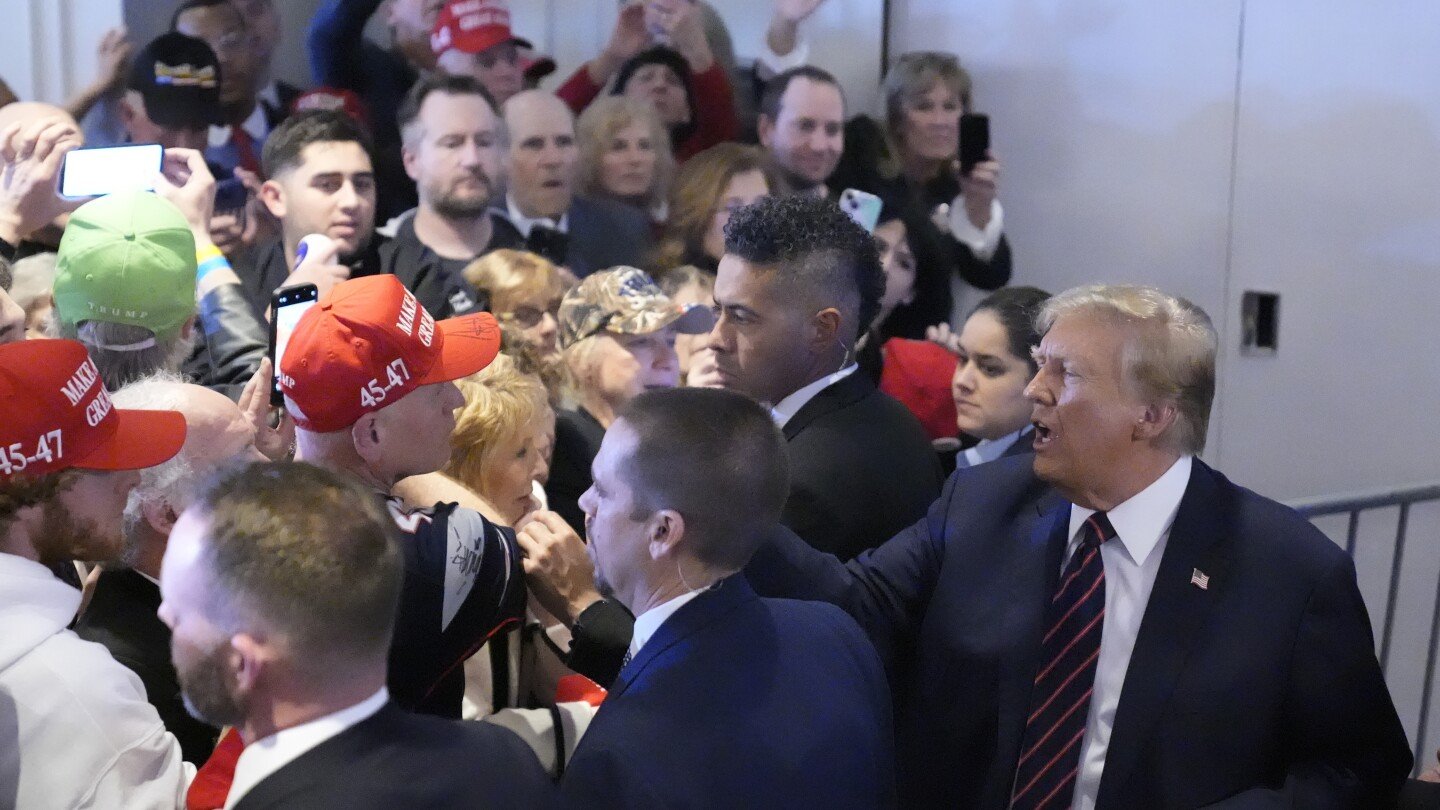WASHINGTON (news agencies) — Former President Donald Trump had rock-solid support from the party faithful in his primary victory Tuesday, with even most backers of rival Nikki Haley acknowledging the GOP belongs to him.
Yet as Trump’s hold on securing the party’s nomination tightened, news agencies VoteCast found that some voters express concerns that he is too extreme to compete in the November general election. Some also worry about his legal peril in pending criminal trials.
Haley, a former South Carolina governor and a U.N. ambassador under Trump, bested him among college graduates and moderates, a possible sign that Trump has yet to expand his political base.
The survey found signs that primary voters on the Democratic side rallied around President Joe Biden. He won in New Hampshire with strong support on the economy, but many have concerns about his age — he is 81 — and his handling of the situation in the Middle East.
Only weeks into 2024, voters have already shown an awareness of Trump’s strengths and liabilities. But even as the coronavirus, the major challenge during the 2020 election, has faded from public view, the cultural and social forces of that Biden-Trump matchup have hardened in ways that are testing the country’s sense of itself.
The New Hampshire primaries are unique because undeclared voters –- those not affiliated with either party –- can choose to vote in either party’s primary. This draws in voters who are not necessarily party loyalists.
Nearly half of GOP primary voters were not affiliated with a party, compared with about 2 in 10 in the Democratic primary. Among those affiliated with the Republican Party in the state, Trump won handily.
news agencies VoteCast is a survey of 1,989 New Hampshire voters who took part in the Republican primary and 915 Democratic primary voters. The survey was conducted by media-NORC Center for Public Affairs Research.
New Hampshire’s demographics favored Trump.
He won in the small towns and rural communities, where about 6 in 10 primary participants say they live. Most GOP voters in the state lack a college degree; about two-thirds of them voted for Trump. He won about 7 in 10 Republican voters who identified as conservatives.
Trump was backed by Republicans who prioritize immigration and held a slight advantage among those prioritizing the economy, the two top issues among GOP voters in New Hampshire and Iowa, where the former president won the leadoff caucuses last week.
Among those in New Hampshire who named immigration as their top priority, about three-quarters support Trump. New Hampshire’s primary voters agreed with Trump on the need to limit immigration and build a wall on the U.S.-Mexico border.
About half of those who said the economy was the top issue backed Trump.
Haley drew her support from groups that could be crucial in November. But those groups were minorities in the GOP electorate.
She beat Trump among primary participants who were not formally affiliated with any party. About half of Haley’s supporters graduated from college, just as about half of them identify as moderates.
In many cases, her backers were simply uncomfortable with Trump.
Haley performed well among those who said Trump did something illegal in at least one of the criminal cases against him. And in the 2020 presidential election, about half of Haley’s supporters voted for Biden, a Democrat.
Iowa exposed suburban voters as a potential weakness for Trump. While Haley did her best in New Hampshire’s suburban communities, she only managed to pull even with Trump in those areas.
Compared with Iowa caucusgoers, New Hampshire Republican primary voters had more doubts about Trump.
In New Hampshire, about half of GOP voters are very or somewhat concerned that Trump is too extreme to win the general election. Only about one-third say the same about Haley.









 United Arab Emirates Dirham Exchange Rate
United Arab Emirates Dirham Exchange Rate